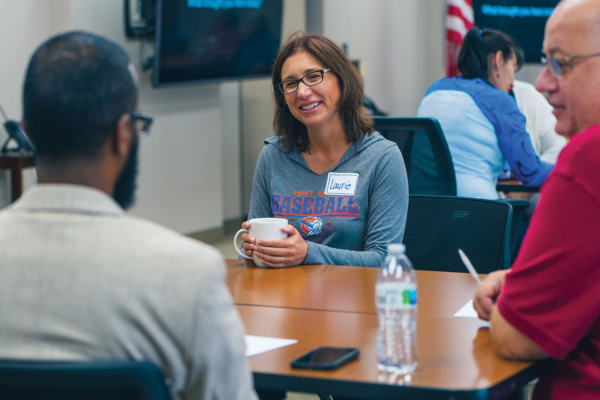Where Do We Go From Here?
Type:
Article
Topics:
School Administrator Magazine
May 01, 2017
President's Corner
I am fortunate to have friends and associates who are good, honorable, trustworthy and patriotic citizens and taxpayers. Most are Christian. Some are Jewish, Muslim, agnostic, atheist, straight, gay, Republican, Democrat, Libertarian or apolitical. Some have college degrees. Some have high school diplomas. Some have neither. I’ve been in their homes, and some have been in mine.
With each election, friends from each of these backgrounds take diametric sides on the issues and the candidates. Whereas most take a more measured approach to politics, some, in fact, are quite passionate and quite vocal about the positions and/or candidates they support.
Fear and unrest were not unique to this election. I recall the protests and violence when President Obama was elected for his first term. There was a spike in the growth of racial hate and militia groups. Many stores’ supplies of guns and ammunition were depleted by those who feared Obama was going to take their firearms. Many people fervently believed he intended to turn the United States into a Muslim state.
As a superintendent, I experienced firsthand parents’ rampant fear that Obama would brainwash our children if he was allowed to speak to them. Children were kept out of school. Folks demanded to see the text of his speech before children were allowed to listen. Some schools recorded his speech and played it only after screening. My office received numerous threatening phone calls because I was allowing students to watch it without prescreening.
The election of President Trump has ushered in numerous and ongoing protests as well. Once again, there have been reports of violence and race-based vandalism. There are those who see a conspiracy with the Russians and a likeness to the rise of Hitler’s Nazi Germany. Some believe racism, intolerance and hate made up the central theme of his campaign and that his subsequent election is validation of the presence of these issues. Some fear a rollback of civil rights and women’s rights.
I have friends who strongly supported President Obama and friends who support President Trump. The same is true of school district leaders across the country. Each group is convinced it is right, and that you cannot support one without opposing the other.
This is the environment in which our children are growing up. How do we hope to find a common good or common ground when many see the world so differently? How do we connect the dots between our personal and political beliefs, voting patterns and obligation to serve children and the precepts of our faiths and our Constitution and Bill of Rights beyond the First and Second Amendments? Why do educators vote for candidates whose policy statements and actions seem not to be in the best interest of public education and the tens of millions of children that public schools are called to serve?
I ask these questions neither to extol nor discount the merits of anyone’s political activity or personal beliefs. Rather, I simply wonder about how — or even whether — we are connecting the dots.
Many see public education as a moral obligation. I certainly do. We cannot hope to preserve or improve public education without fortifying our efforts with professional integrity and moral leadership. We must make the connections between our political actions, our personal beliefs, our messages and our obligations and commitment to the education of the children entrusted to our care.
Join me in the conversation on Twitter at @altonfraileyC4S or #tellyour story.
Author
Advertisement
Advertisement
Advertisement
Advertisement


.png?sfvrsn=3d584f2d_3)
